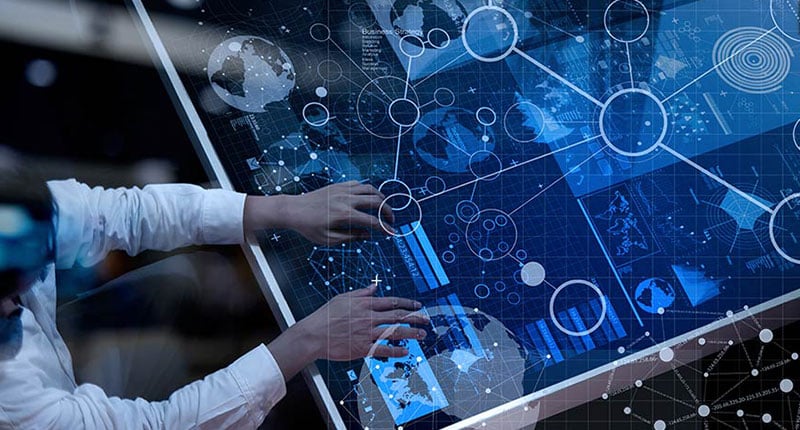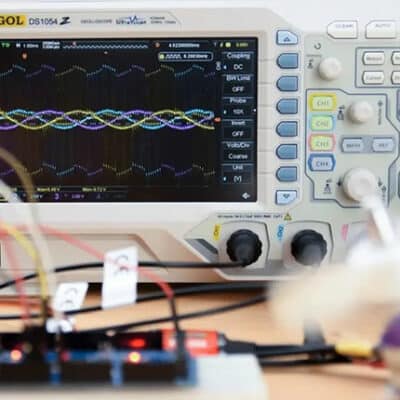
The High Tech Industries Revolutionizing 2023
In a world where technological advancements are happening at an unprecedented pace, 2023 has witnessed remarkable shifts across various industries. From Artificial Intelligence (AI) to renewable energy solutions, numerous sectors have embraced cutting-edge technologies to revolutionize the way we live and work.
Artificial Intelligence (AI) Taking Center Stage
Artificial Intelligence, once confined to science fiction, has become an integral part of our daily lives. Industries like healthcare are utilizing AI algorithms for diagnosing diseases with unparalleled accuracy. Financial institutions rely on AI-driven algorithms for predictive analytics, enhancing risk assessment. Even manufacturing has transformed, with AI-powered robots streamlining production lines for higher efficiency.
Blockchain’s Transformative Power
Beyond its association with cryptocurrencies, blockchain technology is reshaping industries. Supply chain management has become transparent and tamper-proof, ensuring product authenticity. The real estate sector has adopted blockchain for secure and efficient property transactions. Digital identity verification is also leveraging blockchain to safeguard personal information.
5G and the Internet of Things (IoT)
The rollout of 5G networks has unlocked the true potential of the Internet of Things. Smart cities are emerging, equipped with interconnected devices that monitor and manage urban infrastructure. From smart appliances in our homes to autonomous vehicles on the roads, 5G is the backbone that enables seamless data transfer, reducing latency and enhancing connectivity.
Biotechnology Advancements
Biotechnology breakthroughs are offering unprecedented insights into genetics and human health. Personalized medicine tailors treatments based on an individual’s genetic makeup, improving treatment outcomes. While these advancements hold promise, ethical considerations surrounding gene editing and privacy must also be addressed.
Renewable Energy Tech Revolution
The race to combat climate change has accelerated the adoption of renewable energy technologies. Solar panels and wind turbines have become more efficient and affordable. Energy storage solutions, such as advanced batteries, ensure consistent power supply even when the sun isn’t shining or the wind isn’t blowing.
Space Tech: New Frontiers
Private companies are boldly venturing into space, driving innovation beyond Earth’s atmosphere. Satellite technology is enabling global communication and navigation. As companies like SpaceX and Blue Origin explore space tourism, the cosmos is no longer the exclusive domain of governments.
Augmented Reality (AR) and Virtual Reality (VR)
AR and VR technologies are blurring the lines between the digital and physical worlds. In education, students can explore historical events through immersive simulations. Healthcare professionals are using AR for surgical guidance. The entertainment industry is also capitalizing on these technologies, offering captivating gaming experiences.
Advanced Manufacturing Techniques
Traditional manufacturing is undergoing a revolution thanks to advanced techniques. 3D printing allows rapid prototyping and on-demand production. Nanotechnology ensures the creation of materials with specific properties. Smart factories are redefining production processes, reducing waste and increasing efficiency.
Health Tech and Telemedicine
The pandemic highlighted the significance of telemedicine and remote healthcare. Telemedicine platforms provide virtual consultations, improving access to medical expertise. Wearable health devices monitor vital signs and offer early disease detection. AI-powered diagnostics enhance accuracy in medical assessments.
Cybersecurity in a Digital Age
As our lives become more digitally interconnected, the need for robust cybersecurity grows. Data breaches can have severe consequences, prompting industries to invest in state-of-the-art cybersecurity measures. From financial data to personal information, protection against cyber threats is paramount.
Automotive Tech and Autonomous Vehicles
The automotive industry is embracing automation with self-driving cars at the forefront. These vehicles incorporate AI for adaptive cruise control and collision avoidance. The potential benefits include reduced accidents and congestion, as well as increased accessibility for individuals with mobility challenges.
Agriculture Goes High-Tech
Agriculture is experiencing a technological renaissance. Precision agriculture employs sensors and data analysis to optimize crop yields. Drones monitor crop health and spray pesticides precisely, minimizing environmental impact. Technology-driven decisions ensure sustainable farming practices.
Environmental Monitoring Solutions
Tech innovations are essential for safeguarding our environment. Air quality sensors track pollution levels in real time. Water quality monitoring systems detect contaminants in water bodies. Satellite imagery aids in tracking deforestation and habitat loss, allowing timely interventions.
Conclusion
In 2023, the high tech industries are driving a transformation that impacts every facet of our lives. From healthcare to agriculture, from space exploration to renewable energy, cutting-edge technologies are shaping our future. As we embrace these innovations, it’s crucial to prioritize responsible development that considers ethical, social, and environmental implications.
FAQs
1. Are these advancements only benefiting developed countries?
- Not exclusively. Many tech innovations are designed to address global challenges and can have a positive impact in both developed and developing nations.
2. How can I prepare for a career in one of these high tech industries?
- Pursue education in relevant fields such as engineering, computer science, or biotechnology, and stay updated on industry trends.
3. What challenges do these industries face regarding ethical considerations?
- Issues like data privacy, AI bias, and environmental impact need to be carefully addressed to ensure responsible innovation.
4. Are there any potential downsides to the rapid adoption of AI and automation?
- While automation can increase efficiency, there’s a concern about job displacement in certain industries. Adapting skills for the changing job landscape is crucial.
5. How can individuals contribute to the growth of these industries?
- Supporting research, advocating for sustainable practices, and staying informed about technological advancements can contribute to the growth of these industries.











